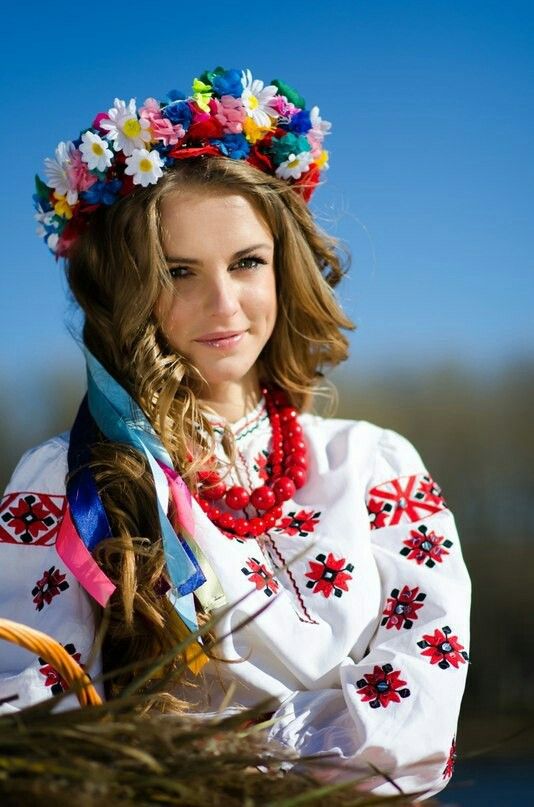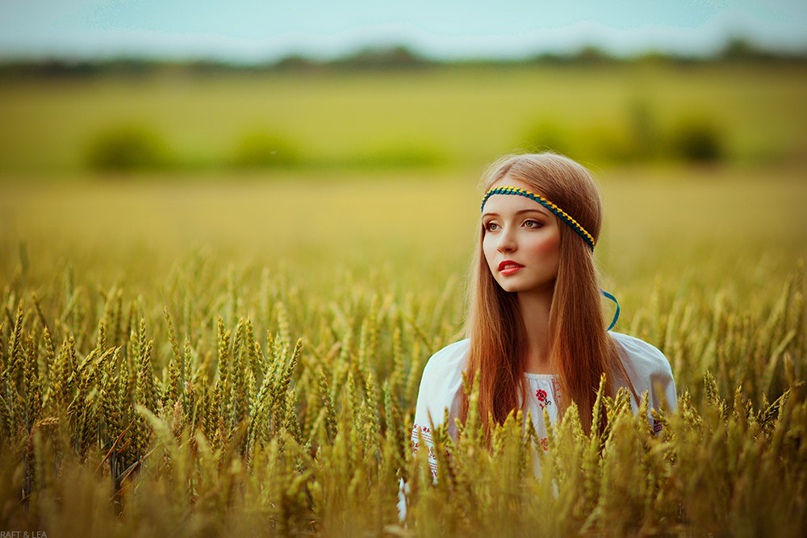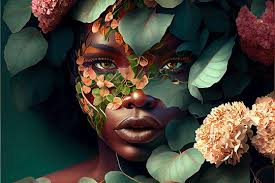Ukraine is a country rich in history, including religious history. Before the advent of the Christian tradition in the 10th century AD, the territory of Ukraine was inhabited by pagan tribes. Their traditions and beliefs influenced the country's development of Christianity and folk traditions.
Today, in Ukraine, religious influence is becoming stronger as there are more than twenty thousand religious communities of approximately eighty different Christian denominations and other religions.
The atheist policy of the USSR heavily influenced religious identity: many Ukrainians today consider themselves atheists, including women and girls. They are not churched due to the vast spiritual void that the Bolshevik regime left in Eastern Europe.
Nowadays, Ukraine is a secular state with a high level of religious freedom. According to the country's laws, church and state are separated.
More than 90% of religiously active citizens consider themselves Christians. Christianity was established as the national religion in 988 by Prince Vladimir the Great. The most important national Ukrainian shrines that are forming religious Identity are the Kyiv Pechersk Lavra and St. Sophia Cathedral, included in the UNESCO World Heritage List.
In Ukraine, the dominant religions are Orthodoxy, Catholic (mostly in Western Ukraine), and Protestant. It is estimated that there are about half a million Muslims and slightly fewer Jews living in Ukraine. According to a survey, the distribution of religious beliefs by region of Ukraine is as follows:
- Ukrainian Orthodox Church (Kyiv Patriarchate) - 44.2%;
- Ukrainian Orthodox Church (Moscow Patriarchate) - 20.8%;
- Ukrainian Greek Catholic Church - 11%;
- Protestants - 2.5%;
- Ukrainian Autocephalous Orthodox Church - 2.4%;
- Roman Catholic Church - 1%;
- Buddhism - 0.2%;
- Paganism - 0.2%;
- Islam - 0.1%;
- Judaism - 0.1%;
- The rest - 8%.
9.5% of respondents said they were atheists. Despite the predominance of Orthodox Christians, Ukrainian spirituality is presented by many different religions.
Faith and beliefs, and Orthodox in particular, has played a decisive role in the life and history of Ukraine. Orthodoxy is a significant social and political force in Eastern Europe, especially after the collapse of the Soviet Union.
Only12 percent of Orthodox Ukrainians report that they attend church weekly, and this reflects trends in other parts of Eastern Europe, where religious behaviour such as attendance at daily prayers and services could be higher than the number of subscribers.
Role of religion in society and lives of women
Ukrainian cultural values include material and spiritual values of the Ukrainian people, formed throughout the history of Ukraine. Strong patriarchal family values, religion, and the traditions shaped the country's culture and had a significant impact on lives of women and girls, as they were considered main “guardians” of family and home. Despite being male oriented, particular attention in Ukrainian art is paid to the woman (Beregina) as a symbol of well-being, fertility, and protection of the home. The traditional image of Bereginia is a woman with her hands raised.
Nowadays, religion is becoming a morality shaping force and plays a significant role in Ukrainian society, offering many people comfort, community, and cultural heritage. However, as in many other countries, there is also debate and controversy surrounding the role of religion in the public sphere, including questions about the relationship between religion and the state, the place of religion in education, interactions between men and women and other areas of public life.
Customs and Religious Traditions of Ukraine
Eastern Orthodox church and community dominates among the beliefs of Ukrainians. There are supporters of both the Ukrainian and Russian Orthodox Churches. They mainly live in central and eastern Ukraine. In western Ukraine, most people support the Eastern or Greek Catholic religion, combining Orthodox rites and Catholic rules.
Other religious minorities include Muslims, mainly among the Tatar society of Crimea, Protestants, and representatives of different forms of religion.
Ukrainians are a reasonably traditional nation. For most people, faith-based values, religious customs and, to a slightly lesser extent, national traditions play a significant role. Many people, especially women and young girls are affected by public judgement that influences on their reputation, social status, and self-confidence. For example, it is almost impossible for a family not to baptise their child, and religious marriages in a church are very common and socially obligatory in rural areas. Girls who live with their boyfriends without marriage are usually condemned. Women are the ones responsible for compliance with all rules and raising children, especially girls.
Religious holidays
Over the centuries, numerous occupation regimes in Ukraine have prohibited the observance of national customs. However, national beliefs and practices or traditional holidays are becoming increasingly popular in urban areas among the younger population.
Food is an integral part of the traditional and religious culture of Ukraine. There are unique dishes that are eaten only on certain occasions. For example, on Christmas Eve, kutya is served along with eleven other dishes. Traditionally women cooked food with the help of young girls, who learned from their mothers and grannies.
Christmas traditions
Many traditions are associated with Christmas, but the most important rituals and rites that Ukrainians regularly observe are Christmas dinner and carolling. Religious celebrations begin on Christmas Eve. Women cook a Christmas dinner of 12 Lenten dishes that symbolise the 12 apostles and the whole family gathers at the table.
The main dish is kutya - a mixture of boiled grains, honey, nuts, poppy seeds, dried fruits, and other fillings. Other Christmas dishes may include mushrooms, fish, dumplings, potatoes, etc. As women usually responsible for cooking, preparing festive food is also laid on their shoulders.
The morning after Christmas Eve is Christmas Day. On this day, fasting ends, and Ukrainians go to church and visit their relatives.
Another ancient custom is carolling or Kolyada. During Kolyada, children and young boys and girls visit neighbours, relatives, and friends, sing traditional songs, and send best wishes to families. In return, the hosts give Koliada participants gifts like sweets, fruits, or money. Koliada participants wear traditional clothes and costumes. They also carry a handmade star, which symbolises the star that appeared at the birth of Christ. Kolyada begins on Christmas Eve and can last several days.
Easter traditions
For many Ukrainian Christians, Easter is the most important and joyful holiday. Before Easter, there is a 7-week fast, which begins after Masnitsa. On Maundy Thursday, the last Thursday before Christmas, people, usually women, clean their home and start preparing eggs and Easter bread paska.
Women usually prepare several pascas of different sizes. While the paskas are baking, it is essential to maintain peace in the house. Women usually add raisins or candied fruits and and decorate paskas on top.
Another element of Ukrainian Easter is pysanka - an egg decorated with folk ornaments. Traditional pysanky are painted with wax and are real works of art. At home, Ukrainians decorate eggs in more simple ways. Women can use food colouring, buy a film for eggs with a pattern, or paint them with natural ingredients. For example, onion peels give eggshells a rich golden colour, beet shells pink, and turmeric yellow.
Before going to church on Easter, Ukrainians prepare a unique Easter basket. Easter bread and eggs, cheese, ham, and sausage were placed in the basket.
In the church, the priest blesses the food in the basket. After Ukrainians come home from church, they have breakfast together. Breakfast should begin with eggs and other blessed foods; the family may eat different foods.
Green Week
Green Week is an ancient Slavic holiday with pagan roots. After Ukraine adopted Christianity, it began to be celebrated in connection with the Christian holiday of Pentecost. Green Week starts on the Thursday before Pentecost. During Green Week, Ukrainian women usually decorate their homes with plants and flowers that symbolise the rebirth of nature and the beginning of summer. During this time, people also honour their ancestors and visit their graves.
School and religion education
Officially, school education is separated from religion in Ukraine, and public schools do not provide religious lessons other than general education courses.
However, private and religious schools are free to organise their school programs that impact the lifestyle of their students. But the state does not recognize them and does not receive any government subsidies. Such schools must still adhere to the state curriculum but can also introduce their subjects into children's education.
In addition to private schools, believers can attend Sunday schools at churches. Priests and active community members usually teach lessons in such schools.
Baptist churches can also provide children's education, which includes Bible study.
The religiosity of women and girls in Ukraine directly depends on their family and immediate environment.























